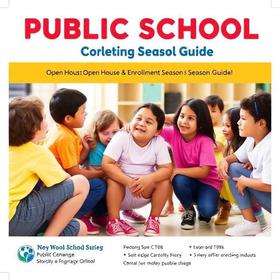Top Rankings
Neighborhood Charter School Of Harlem School District ranks among the top 20% of public school district in New York for:
Category
Attribute
Overall Rank
Highest overall rank (Top 20%)
Math Proficiency
Highest math proficiency (Top 10%)
For the 2025-26 school year, there is 1 public school serving 596 students in Neighborhood Charter School Of Harlem School District. This district's average testing ranking is 9/10, which is in the top 20% of public schools in New York.
Public School in Neighborhood Charter School Of Harlem School District have an average math proficiency score of 78% (versus the New York public school average of 52%), and reading proficiency score of 56% (versus the 49% statewide average).
Minority enrollment is 99% of the student body (majority Hispanic), which is more than the New York public school average of 60% (majority Hispanic).
Overview
This School District
This State (NY)
# Schools
1 School
4,816 Schools
# Students
596 Students
2,507,390 Students
# Teachers
n/a
217,162 Teachers
Student-Teacher Ratio
n/a
n/a
Student By Grade
District Rank
Neighborhood Charter School Of Harlem School District, which is ranked #181 of all 1,008 school districts in New York (based off of combined math and reading proficiency testing data) for the 2022-2023 school year.
Overall District Rank
#173 out of 1017 school districts
(Top 20%)
(Top 20%)
Math Test Scores (% Proficient)
78%
52%
Reading/Language Arts Test Scores (% Proficient)
56%
49%
Science Test Scores (% Proficient)
75-79%
78%
Students by Ethnicity:
Diversity Score
0.55
0.72
% American Indian
n/a
1%
% Asian
2%
10%
% Hispanic
53%
30%
% Black
42%
16%
% White
1%
40%
% Hawaiian
n/a
n/a
% Two or more races
2%
3%
All Ethnic Groups
District Revenue and Spending
The school district's spending/student of $33,690 is higher than the state median of $32,199. The school district spending/student has grown by 12% over four school years.
Spending
$20 MM
$80,737 MM
Spending / Student
$33,690
$32,199
Best Neighborhood Charter School Of Harlem School District Public Schools (2025-26)
School
(Math and Reading Proficiency)
(Math and Reading Proficiency)
Location
Quick Facts
Rank: #11.
Neighborhood Charter School Of Harlem
Charter School
(Math: 78% | Reading: 56%)
Rank:
Rank:
8/
Top 30%10
691 St Nicholas Ave
New York, NY 10031
(646) 701-7117
New York, NY 10031
(646) 701-7117
Gr: K-8 | 596 students Minority enrollment: 99%
Frequently Asked Questions
How many schools belong to Neighborhood Charter School Of Harlem School District?
Neighborhood Charter School Of Harlem School District manages 1 public schools serving 596 students.
What is the rank of Neighborhood Charter School Of Harlem School District?
Neighborhood Charter School Of Harlem School District is ranked #181 out of 1,008 school districts in New York (top 20%) based off of combined math and reading proficiency testing data for the 2022-2023 school year. This district ranks in the top 20% of New York school districts for: Highest overall rank (Top 20%) and Highest math proficiency (Top 10%)
What is the racial composition of students in Neighborhood Charter School Of Harlem School District?
53% of Neighborhood Charter School Of Harlem School District students are Hispanic, 42% of students are Black, 2% of students are Asian, 2% of students are Two or more races, and 1% of students are White.
What is Neighborhood Charter School Of Harlem School District's spending/student ratio?
The school district's spending/student of $33,690 is higher than the state median of $32,199. The school district spending/student has grown by 12% over four school years.
Recent Articles

Charter Schools vs Public Schools 2025: Key Differences & Trends
Explore updated 2025 insights comparing charter schools vs public schools, enrollment, academic outcomes, funding, and real-world examples for families and educators.

Are Public Schools Ready for the 21st Century? 2025 Update
Explore 2025 insights on whether public schools are ready for the 21st century, covering performance, technology, equity, funding, and future-ready learning.

Public School Open House & Enrollment Season Guide
A parent-focused guide to the public school open house and enrollment season, with expert questions, timelines, and decision tips.





